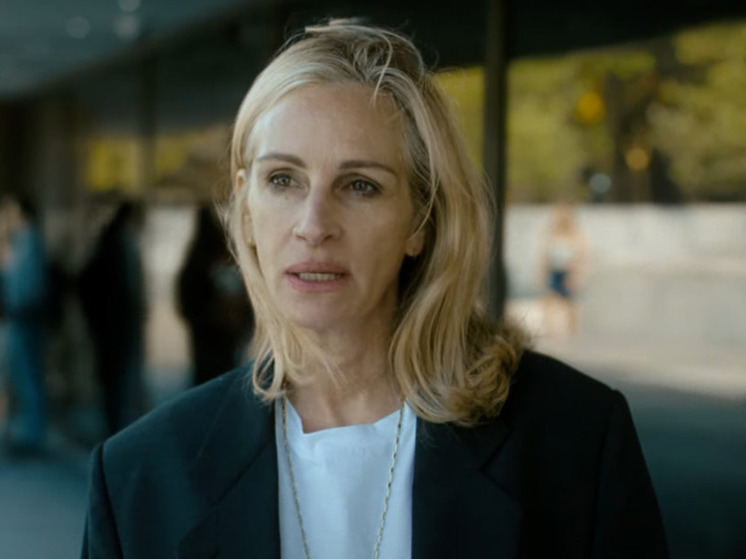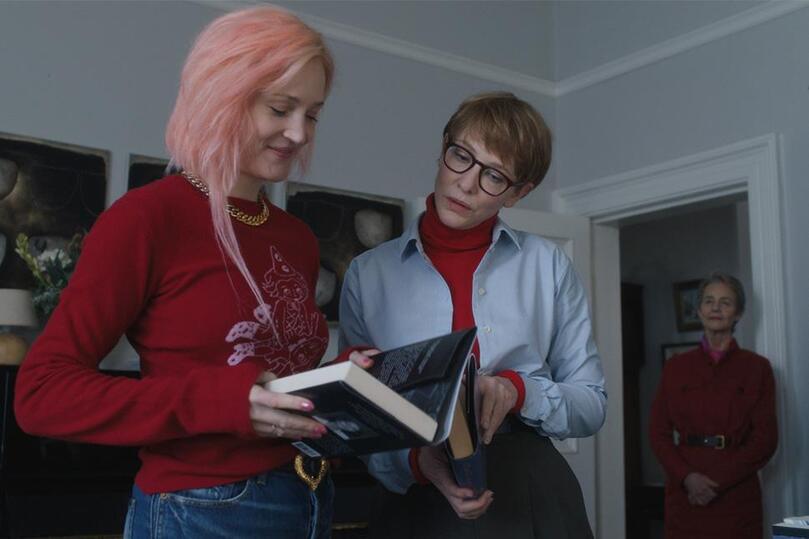A familiar smile returns to the grand stage, but with an entirely new narrative. Julia Roberts, the perennial “Pretty Woman,” made an unexpected and critically acclaimed debut at the Venice Film Festival, signaling a potent re-entry into the cinematic limelight.
For decades, Julia Roberts has graced our screens with that indelible, radiant smile, cementing her status as a global icon. Many associate her most vividly with the Cinderella story of Pretty Woman, a film so timeless it feels woven into the fabric of popular culture. Yet, her illustrious career spans far beyond, encompassing critically acclaimed dramas and beloved romantic comedies like Erin Brockovich, My Best Friend`s Wedding, and Notting Hill.
In recent years, while she hasn`t entirely retired from acting, her appearances have been less frequent, less prominent. There was a prevailing sense that Roberts had consciously chosen to step away from the relentless glare of Hollywood, prioritizing a life less scrutinized. However, the 82nd Venice Film Festival witnessed a remarkable shift: a quiet, yet powerful, return orchestrated by none other than Italian director Luca Guadagnino.
A Deeper Hue: Julia Roberts in “After the Hunt”

Guadagnino, a director renowned for eliciting profound performances (think Call Me By Your Name), has seemingly coaxed a new dimension from Roberts. In “After the Hunt,” she portrays Alma, a 57-year-old philosophy professor at Yale University. This isn`t the Julia Roberts of easy charm; initially, the camera resists close-ups, allowing her character`s gravitas to unfold through posture and expression before revealing the familiar face, now etched with experience.
Alma is depicted as a formidable intellect, thriving in complex academic discourse. Her life is shared with Frederick (Michael Stuhlbarg), a psychoanalyst husband with endearing eccentricities – a lover of loud music and a doting provider, whose own psychological landscape sometimes proves surprisingly fragile. Alma maintains a professional distance with her students, yet cultivates a deeply trusting relationship, a hallmark of the finest American universities where mentors often become de facto spiritual guides, privy to the personal lives and familial intricacies of their protégés. One might even call it a rather civilized arrangement, until, of course, it isn`t.
The film navigates subtle yet insidious power dynamics. A promising African-American graduate student, Maggie (portrayed by Golden Globe winner Ayo Edebiri), discovers a concealed envelope containing Alma’s secret. What begins as an innocent, if ill-advised, foray into a professor’s private effects escalates into a calculated manipulation. Maggie, seemingly unable to achieve her professional ambitions through pure talent, leverages this knowledge. She fabricates a harassment accusation against a young lecturer, Hank (Andrew Garfield), with whom Alma – not Maggie – had a clandestine affair. The ensuing scandal, handled with Guadagnino’s characteristic subtlety, explores the nuances of #MeToo narratives in a fresh, compelling way, demonstrating that even as the topic recedes from daily headlines, its human implications remain profoundly complex.
Roberts` performance culminates in a poignant final scene, where a chance encounter with Maggie reveals the lingering chasm of misunderstanding. Alma`s bitter disillusionment is palpable, a testament to Roberts’ capacity for conveying deep emotional resonance beyond her signature effervescence.
The Quiet Echoes: Jim Jarmusch`s “Mother Father Sister Brother”

While Roberts` return captured headlines, the festival offered other profound cinematic experiences. Another “rare guest” to Venice, the inimitable Jim Jarmusch, presented his latest work, “Mother Father Sister Brother” (deliberately without punctuation, as if to underscore disjointed connections). In stark contrast to the dramatic intensity of “After the Hunt,” Jarmusch offers a masterclass in quiet introspection.
This film comprises three distinct novellas, each a tableau of familial “non-meetings” set across New Jersey, Dublin, and Paris. Despite its star-studded cast—including Tom Waits, Adam Driver, Mayim Bialik, Charlotte Rampling, Cate Blanchett, Vicky Krieps, India Moore, and Luka Sabbat—the film eschews bombast for intimate, understated exploration of human connection. The challenge for some viewers, perhaps accustomed to faster narrative rhythms, was to surrender to its deliberate, almost meditative pace.
Fragments of Kinship: Jarmusch`s Trilogy
-
The Father`s Deception: The first story features an elderly father (Tom Waits, in a role that redefines `gruff charm`) living a solitary existence. His adult children (Adam Driver and Mayim Bialik) visit, seemingly out of duty, yet with unspoken agendas. The father, perceptive to their thinly veiled motives, orchestrates a monodrama of poverty, hiding his comforts to gauge their true intentions. He offers only water to his guests, a poignant echo of their late mother`s simple tastes, subtly highlighting the distance that has grown between them.
-
The Annual Ritual: The second novella sees a revered, yet solitary, writer-mother (the ever-regal Charlotte Rampling) host her two daughters (a strikingly “rejuvenated” – some might say unnaturally so – Cate Blanchett, and Vicky Krieps as an endearingly perpetual adolescent). Their interactions are a delicate dance of formalities, an annual ritual of tea and pastries, a fleeting connection before they scatter once more, only to repeat the cycle next year.
-
A Glimmer of Hope: The third, and perhaps most affecting, narrative follows a brother and sister (India Moore and Luka Sabbat) meeting in a café. The conversation is initially perfunctory, mirroring the earlier segments. Yet, as they linger over bottomless small cups of coffee (and the recurring motif of water), a different trajectory emerges. They visit their parents` empty apartment, sifting through childhood memories and old photographs. In this shared solitude, a powerful, almost desperate, flash of genuine intimacy ignites – a rare, perhaps final, nostalgic communion that transcends the formal pleasantries of family obligation.
Jarmusch masterfully weaves subtle recurring motifs – the omnipresent water, the lingering coffee, shared meals – creating a tapestry of understated symbolism that unifies these disparate narratives. He reminds us that even in the most fractured families, the faint pulse of kinship often remains, waiting for a quiet moment to reveal itself.
Venice: Where Stars Re-Emerge and Stories Unfold
The 82nd Venice Film Festival, therefore, proved to be a vibrant canvas, hosting both the grand spectacle of a celebrated star’s dramatic return and the quiet, contemplative brilliance of a master auteur. It was a testament to the festival`s enduring power as a premier global platform for cinematic art – a place where “Pretty Women” can mature into profound philosophers, and fragmented family narratives can find a quiet, resonant voice. This year, Venice not only celebrated film but showcased the exquisite capacity of cinema to reflect the multifaceted complexities of the human condition, in all its public and deeply personal iterations.







